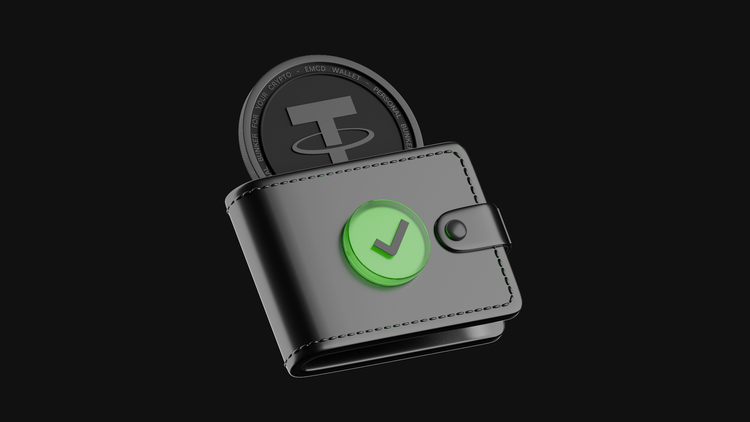EMCD vs CoinsBank: Which Crypto Payment Platform Is Better for Your Business?

As cryptocurrency adoption expands across global markets, businesses are seeking reliable platforms to facilitate secure, efficient, and scalable digital payments. Both EMCD and CoinsBank offer distinct advantages for companies operating in the blockchain economy.
This comparison explores their features, infrastructure, and value propositions to determine which solution best meets your commercial demands.
EMCD B2B Overview: Seamless Crypto Payments for Global Commerce
EMCD is more than just a payment processor. Originally known for its role as a top global Bitcoin mining pool, EMCD has evolved into a full-scale crypto infrastructure platform. Today, it empowers businesses with a non-custodial payment gateway that combines security, flexibility, and robust control.
What sets EMCD apart is its business-focused architecture. The platform offers:
- Direct wallet-to-wallet transactions
- Instant crypto-to-fiat conversion
- Transparent 0.5% flat transaction fee
- Support for over 600 cryptocurrencies
EMCD’s ecosystem is particularly suited for businesses operating across borders or dealing with multiple currencies. Its infrastructure ensures that merchants remain in full control of their funds without intermediaries holding their crypto.
With WooCommerce, Magento, PrestaShop, WIX, and OpenCart plugins, plus powerful API and webhook support, EMCD can be integrated into nearly any business model. Whether you're building a SaaS platform or managing an international online store, this platform is designed to scale with your needs.
Beyond transactions, EMCD also offers features like smart routing, real-time analytics, and multi-store dashboards, giving you insights and automation tools you won’t typically find with other platforms.
CoinsBank Overview: Bridging Crypto Exchange, Wallets, and Payments
CoinsBank crypto service positions itself as an all-in-one crypto financial platform, offering a blend of exchange, wallet, and payment gateway services. Founded in 2016 and formerly known as Bit-X, the company is headquartered in Edinburgh. Its aim is to create an open financial system that makes it easy for individuals and businesses to pay with crypto in everyday scenarios.
Unlike EMCD, which is non-custodial, CoinsBank operates as a custodial service. This means all crypto and fiat funds are stored within the platform's own system. CoinsBank integrates multiple services into a single ecosystem, including:
- Cryptocurrency exchange
- Fiat and crypto wallets
- Merchant payment solutions
- Mobile apps for Android and iOS
CoinsBank’s key strength lies in its user-friendly interface and multi-functional app, allowing you to trade, store, spend, and accept crypto. Businesses can receive payments in Bitcoin, Litecoin, and fiat currencies such as USD, EUR, and GBP.
While CoinsBank has gained a strong reputation in the crypto community, it operates solely in English and has a multi-step verification process for full access. It also charges platform fees that vary depending on transaction type and method.
Core Features Compared: EMCD vs CoinsBank for Business Needs
While both EMCD and CoinsBank aim to simplify crypto payments for businesses, their core functionalities reveal very different philosophies. EMCD is built for scale, automation, and compliance, while CoinsBank focuses on offering an all-in-one crypto banking environment with strong consumer-facing tools.
Here’s how their key features compare side-by-side:
| Feature | EMCD | CoinsBank |
| Wallet type | Non-custodial (merchant retains full control) | Custodial (funds stored on platform) |
| Main focus | Business-grade crypto payment gateway | Crypto exchange, wallet, and payment services |
| Plugin support | WooCommerce, Magento, OpenCart, PrestaShop, WIX | WooCommerce |
| Dashboard and analytics | Advanced real-time analytics, multi-store support | Basic balance and transaction monitoring |
| Fiat Conversion | Built-in conversion to EUR, USD, GBP | Limited, with fixed fiat pairs |
| Mobile App | Yes (business wallet and dashboard integration) | Yes (wallet, trading, and payment features) |
| Merchant Tools | Smart routing, refund automation, API/webhooks | Wallet sync, invoice tools |
| Regulatory Compliance | AML/KYC-compliant | Licensed in Estonia and Denmark |
EMCD shines when it comes to infrastructure, offering deeper customization, integration tools, and full control over wallet and payout logic. It’s clearly designed for businesses that need crypto to integrate smoothly into existing systems and workflows.
CoinsBank, by contrast, prioritizes simplicity and versatility, making it attractive for users who want access to trading and payments in one app, but with trade-offs in dashboard depth, analytics, and merchant customization.
More Tokens, More Customers: A Clear Look at Crypto Coverage
Token support is a major factor in choosing the right crypto payment platform, especially for businesses aiming to capture a global audience. EMCD offers support for over 600 cryptocurrencies, including major assets like BTC, ETH, USDT, TON, and KASPA, as well as a wide range of stablecoins and Layer-2 tokens. This level of coverage is comparable to top-tier exchanges, giving merchants the flexibility to accept crypto payments from almost any customer, regardless of their preferred digital coin.
CoinsBank, while more limited in scope, supports a core crypto selection like Bitcoin, Litecoin, Ethereum, and Ripple, in addition to fiat currencies like USD, EUR, and GBP. This setup suits straightforward use cases but may limit reach in altcoin-heavy markets.
In short, EMCD is a better fit for merchants who want to cast a wider net across the crypto market. CoinsBank works best when dealing with high-volume currencies and fewer token types.
The True Cost of Crypto Payments: Comparing EMCD and CoinsBank
Transparent pricing is essential for forecasting and scaling, especially in the volatile crypto market. EMCD offers a simple, predictable model — a flat 0.5% transaction fee with no setup, subscription, or hidden network charges. Businesses know exactly what they pay with EMCD, making it easier to calculate ROI and manage margins.
CoinsBank, on the other hand, uses a more layered fee system. Trading fees are set at 0.20% for makers and 0.50% for takers, but additional fees apply for deposits, withdrawals, and even inactivity. For example, withdrawal fees vary by currency, and frequent logins via SMS can incur extra charges.
In summary, EMCD’s fee model is more suitable for businesses aiming for operational clarity. CoinsBank provides more flexibility for traders but can introduce unexpected costs for merchants running steady transaction flows.
Deep Integration or Simple Setup: What Your Business Really Needs
When it comes to integration, EMCD b2b is clearly built for scale. It provides a full set of developer-friendly tools, including API access, webhooks, and a wide range of ready-made plugins for WooCommerce, Magento, OpenCart, PrestaShop, and WIX. There’s also a no-code smart button for instant deployment, making it accessible to both tech teams and non-technical users.
CoinsBank offers more basic tools. While CoinsBank supports WooCommerce, its integration options are limited. There’s no advanced developer documentation or automation capabilities for complex workflows, such as multi-store management or dynamic fiat conversion.
If your business relies on custom logic, real-time sync, or crypto-to-fiat automation, EMCD delivers more control. CoinsBank is better suited for simpler setups or merchants who prefer basic invoicing over deep integration.
Security Without Compromise: EMCD’s Infrastructure vs CoinsBank’s Basics
Security and compliance are non-negotiable for businesses operating in the crypto space. EMCD follows strict international standards with military-grade encryption. The platform enforces AML/KYC protocols and supports non-custodial wallet management, giving merchants full control over funds while maintaining regulatory clarity.
CoinsBank applies solid but less transparent protections. It uses 2FA, cold wallet storage, and session-based security measures. However, it lacks public security audits, which may concern businesses in regulated sectors.
If compliance and data protection are priorities, especially for finance, SaaS, or global e-commerce, then EMCD’s infrastructure is stronger.
Wallets, Risk, and Control: How EMCD and CoinsBank Approach Custody
How a platform handles wallets plays a major role in merchant control, flexibility, and risk management. EMCD and CoinsBank take distinctly different approaches here.
EMCD is built on a non-custodial framework, which ensures:
- Merchants retain full control over crypto assets
- Wallet-to-wallet settlements for direct ownership
- Funds are never stored by the platform
- It’s suitable for businesses requiring compliance and treasury independence
CoinsBank is custodial, and the following applies:
- All assets are held within the platform’s internal wallet
- It simplified management for users unfamiliar with crypto storage
- It offers easy spending and conversions, but reduces user control
In essence, EMCD is the better fit if your business demands ownership, transparency, and lower custodial risk. CoinsBank offers convenience but requires full trust in the platform's custody system.
From Instant to Days: How EMCD and CoinsBank Differ on Payout Speed
For businesses working with crypto, fast and flexible settlement is key to healthy cash flow. Both EMCD and CoinsBank offer ways to access funds, but they differ in speed, options, and fiat availability.
| Aspect | EMCD | CoinsBank |
| Settlement speed | Near-instant for crypto and fiat withdrawals | 1–3 business days depending on method |
| Fiat support | EUR, USD, GBP via auto-conversion | EUR, USD, GBP (bank transfer or card withdrawal only) |
| Crypto withdrawals | BTC, ETH, USDT (wallet-native) | BTC, LTC, ETH, USDT, XRP |
| Internal wallet use | Not applicable (non-custodial) | Required for all transactions |
| Minimum withdrawal | Low, varies by token | Higher thresholds |
| Conversion options | Real-time fiat conversion from the dashboard | Limited; fixed exchange pairs, some network fees may apply |
EMCD provides more payout flexibility, instant conversions, and multi-currency support, which is critical for fast-moving or international businesses. CoinsBank, while functional, involves more waiting time and fewer automation options.
Beyond Balances: EMCD vs CoinsBank on Dashboards and Merchant Tools
Beyond balances, a powerful dashboard offers real-time analytics and tools to optimize every aspect of crypto transactions. EMCD offers a professional-grade interface that supports real-time transaction tracking, live revenue analytics, automated refunds, and payout management. Businesses can export reports, configure multi-store logic, and even automate crypto-to-fiat conversion without switching tools or platforms.
This level of depth makes EMCD not just a payment gateway but a full operational hub for merchants using crypto at scale. Everything connects directly to the EMCD Wallet, offering a seamless user experience without the need for external exchanges or third-party dashboards.
In contrast, CoinsBank provides a more minimalistic interface, focused on essential wallet functions and basic transaction visibility. While you can monitor balances and generate invoices, the platform lacks advanced analytics or automation capabilities. For merchants managing multiple storefronts or currencies, this can limit strategic insight and operational flexibility.
Simply put, EMCD is designed for control, while CoinsBank favors simplicity. Your choice depends on whether you're managing crypto as a core revenue stream or just adding it as an alternative checkout option.
Crypto Platforms Compared: Customer Support and Reputation
When operating in the crypto space, real-time support can make a critical difference, especially during periods of market volatility or urgent transaction issues.
EMCD delivers 24/7 live chat support across multiple time zones and languages. Their support team is well-versed in onboarding, technical integration, and payout troubleshooting. This around-the-clock availability builds confidence for merchants who operate globally or need assistance beyond standard business hours. EMCD’s platform is trusted by over 400 000 users in more than 80 countries, with positive reviews on sites like Trustpilot reinforcing its reliability and growing reputation in the industry.
CoinsBank, in contrast, uses a ticket-based support system and provides assistance via Telegram. While it’s functional for most general inquiries, response times may vary, especially for complex issues like payment delays or verification problems. The platform has maintained a decent standing in the market, largely due to its longstanding presence and consistent service, but it's not positioned as a support-driven enterprise tool.
If your business requires fast, responsive, and high-touch customer service, EMCD has the stronger infrastructure. CoinsBank serves simpler needs well but may lag in time-sensitive support scenarios.
From Startups to Scaleups: Matching Crypto Platforms to Business Needs
Not all crypto payment platforms are built for the same kind of business. EMCD is best suited for e-commerce, SaaS, and Web3 platforms that need full control over wallets, advanced analytics, and fast crypto-to-fiat settlements. Its support for WooCommerce, multiple plugins, and API tools makes it ideal for scaling companies that view crypto as a core revenue channel, not just a side option.
CoinsBank fits a different profile. It works well for freelancers, small online sellers, and crypto-first microbusinesses. The platform’s all-in-one wallet and the custodial model simplify asset storage and spending. It’s also a good fit for Telegram-based stores or users prioritizing easy use over deep customization.
If you're looking to grow a crypto-integrated business, EMCD offers the tools to scale securely. If you want a quick way to start accepting crypto with minimal setup, CoinsBank gets the job done efficiently. However, for businesses that prioritize control, compliance, multi-coin support, and long-term scalability, EMCD clearly delivers more value.
Choosing Between EMCD and CoinsBank: A Pros and Cons Breakdown
A clear comparison of advantages and limitations helps identify which platform aligns best with your business goals. Here's how EMCD and CoinsBank stack up:
| Criteria | EMCD | CoinsBank |
| Pros | Flat 0.5% transaction fee | All-in-one wallet and exchange ecosystem |
| Supports over 600 cryptocurrencies (BTC, ETH, USDT, TON and others) | Supports fiat (USD, EUR, GBP) deposits and withdrawals | |
| Non-custodial wallet: full merchant control | Simple interface and fast onboarding | |
| Rich integration options (WooCommerce, APIs, plugins) | Built-in exchange and invoice tools | |
| Cons | No internal exchange for crypto swapping | Custodial: user funds held by the platform |
| Requires initial wallet setup | Limited token support | |
| Variable fees, including withdrawal charges and inactivity penalties |
EMCD excels in infrastructure, flexibility, and token variety, making it ideal for globally oriented, crypto-first merchants. CoinsBank, while less versatile in crypto support, offers an all-in-one approach with built-in exchange and fiat options, best suited for those who value simplicity and integrated services.
Which Platform Offers More Value?
If you're building a scalable, secure, and compliant crypto business, EMCD is the stronger choice. It offers broader token support, better control, transparent fees, and deep integration tools. CoinsBank, while user-friendly, is better suited for simple setups and wallet convenience.
For long-term growth, automation, and global reach, EMCD delivers more value, especially for businesses ready to scale with crypto.
FAQ
What are the main differences between EMCD and CoinsBank for merchants?
EMCD is a non-custodial crypto payment gateway built for scale, offering transparent fees, full wallet control, fiat conversion, and advanced business tools. CoinsBank is a custodial platform combining a crypto exchange and a wallet, focused more on convenience than deep merchant infrastructure.
Which platform offers lower fees and better rates?
EMCD offers a predictable flat 0.5% transaction fee with no hidden charges, making it ideal for budgeting and financial planning. CoinsBank has variable fees, including trading spreads, withdrawal costs, and monthly inactivity charges, which can lead to higher or less predictable expenses over time.
How many cryptocurrencies are supported by each service?
EMCD supports over 600 cryptocurrencies, including Bitcoin, Ethereum, USDT, and many altcoins. CoinsBank supports a much smaller number — around 15 pairs, primarily BTC, ETH, LTC, XRP, and a few fiat options.
Which solution is more secure and regulation-compliant?
EMCD enforces AML/KYC. It uses non-custodial wallets, giving merchants full fund control. CoinsBank offers 2FA, cold wallets, and session controls but lacks public certifications or independent audits, making EMCD more secure and regulation-ready.
Is CoinsBank or EMCD easier to integrate with websites or apps?
EMCD supports integration via WooCommerce, Magento, WIX, OpenCart, APIs, and smart buttons, making it more flexible and scalable for various platforms. CoinsBank has limited plugin options and focuses on WooCommerce and Telegram bots, which may suit simple use cases but not complex or growing businesses.
Which is better suited for global or high-volume businesses?
EMCD is built for high-volume operations, with fast settlements, multi-currency fiat payouts, detailed analytics, and scalable API tools. CoinsBank is better for small merchants, freelancers, or those needing a crypto wallet service. It’s not for managing global crypto revenue at scale.












